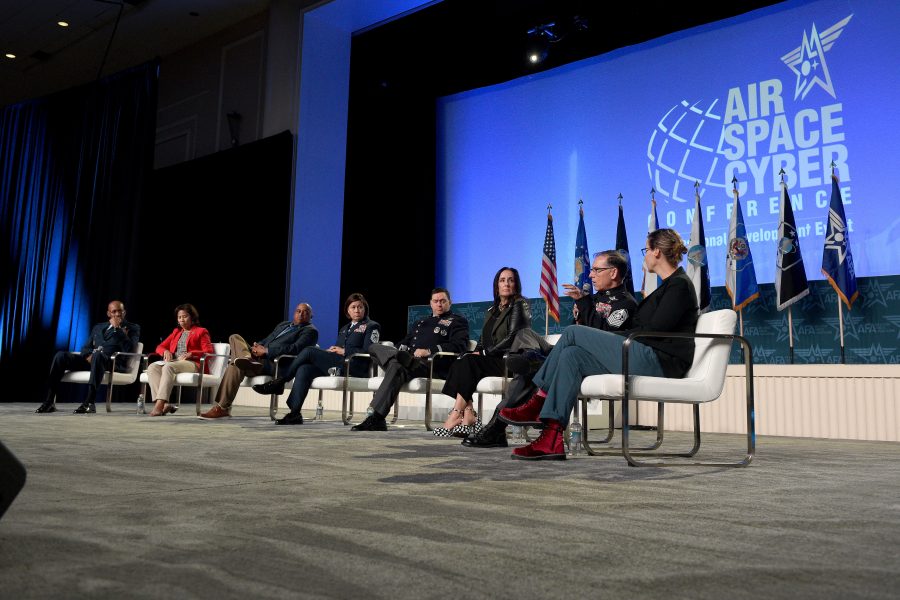With Pentagon data showing declining satisfaction with military life among military spouses, leaders of the Air and Space Forces and their spouses discussed the challenges and importance of work-life balance Sept. 13 at AFA’s Air, Space, & Cyber Conference.
The chiefs and top enlisted members from both services and their partners also shared insights on how to seek support and prioritize self-care.
Back in February, the Department of Defense announced the results of a survey revealing troubling trends in the satisfaction of partners of those who wear uniforms with their spouse’s military life. Only 49 percent of military spouses were satisfied in 2021, down from 56 percent in 2019, and the percentage in favor of their spouses remaining in service decreased to 54 percent, a notable dip from 68 percent in 2012.
A central theme of the panel discussion was how to maintain quality time when the demands of military service never seem to end. Sharene Brown, the wife of Air Force Chief of Staff Gen. Charles Q. Brown Jr., talked about reaching out to the community and stressed the importance of connecting with other military spouses to cope with the inevitable hardships of military life.
“Military spouses connecting, creating a safe space, and expressing any resentment they may have is crucial. We understand each other. Often, they feel they can’t voice their concerns, but that’s not a healthy approach,” she said.
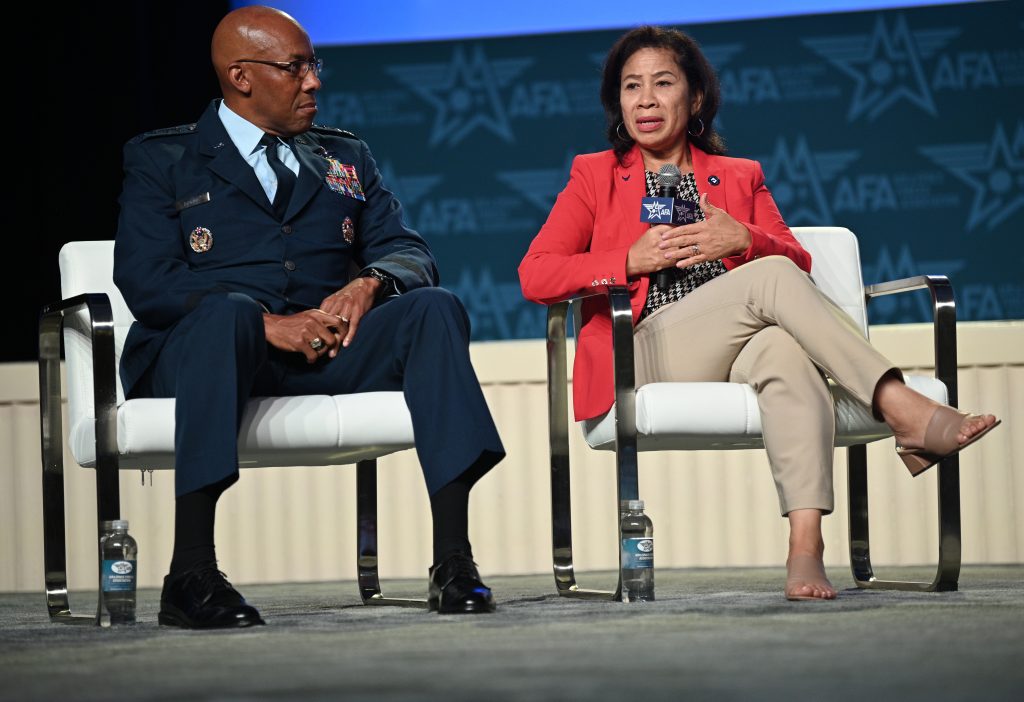
Rachel Rush, the spouse of Chief Master Sergeant of the Space Force Roger Towberman, talked about resentment that spouses can feel. Rush, who is also a nurse, shared her experiences of self-doubt, and said she sometimes felt like a “plus one” in her husband’s life; she emphasized that military spouses should have their own identity and purpose.
“Although you share this journey with the person you love, it’s important to pursue your own passions as much as you support each other,” Rush said. “I love him, but I also love myself, and he allows me to be selfish at times, which enriches our life together.”
Towberman echoed this, saying that serving the nation is a team effort, and the family is an integral part of that journey. He also discussed the challenges of balancing family time, preferring the term “harmony” to “balance.”
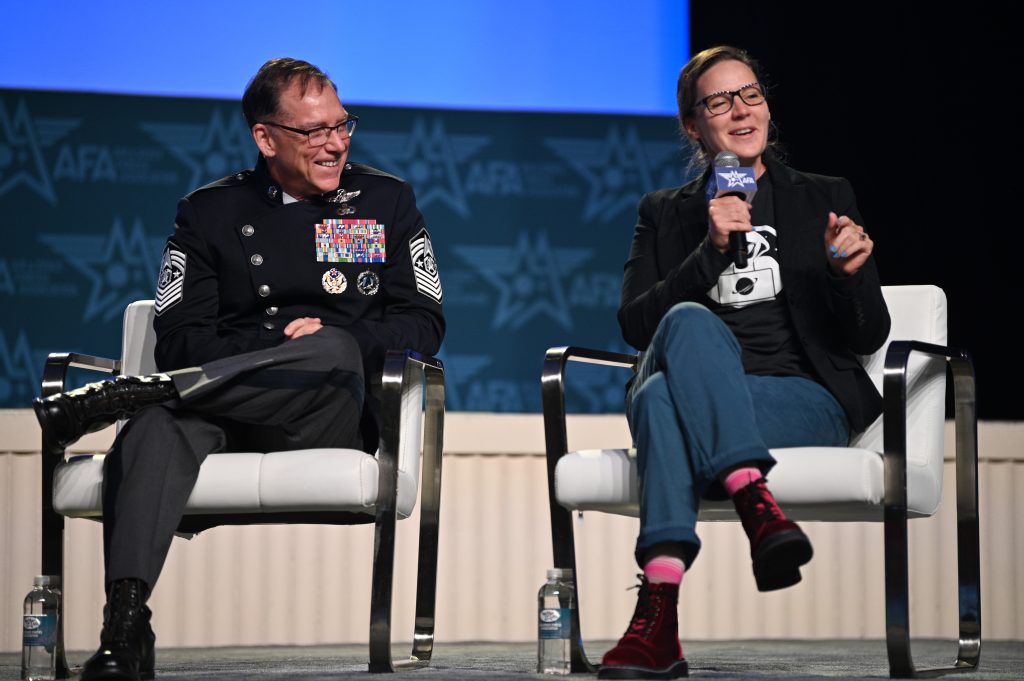
Making Time for Each Other
While setting aside time for communication in any relationship can be a struggle, in military families, this challenge is even more pronounced, panel members said. Not only does the military member have issues such as classified information they can’t share with their partners, but they also grapple with irregular work hours and frequent relocations. Often, they find it difficult to leave work behind because the weight of their duties lingers on their minds even after they return to their families.
Jennifer Saltzman, the wife of Chief of Space Operations Gen. B. Chance Saltzman, shared her approach to coping with these challenges. She said that she and her husband haven’t quite achieved the ideal work-life balance yet, but they are working toward it.
“It’s challenging to separate the demanding work, especially when you can’t always share it. So, you must intentionally set aside time for each other and take care of one another as much as possible.”
This deliberate allocation of time for each other is particularly demanding for dual military families like Chief Master Sergeant of the Air Force JoAnne S. Bass and her husband, retired Army 1st Sgt. Rahn Bass. JoAnne Bass discussed the importance of community involvement, such as engaging with neighbors and having friends nearby to help alleviate these challenges.
“Often, our military bases were located far away, so we learned that communication between us was vital, even when it came to the kids, their homework, or the local community. Neighbors and wingmen are willing to offer assistance. Reach out and be open to their support.”
Rahn Bass added that finding a supportive church community and cultivating friendships with civilians and other couples have also contributed positively to their relationship. He emphasized that the need for humility is a shared sentiment, whether one wears the uniform or not.
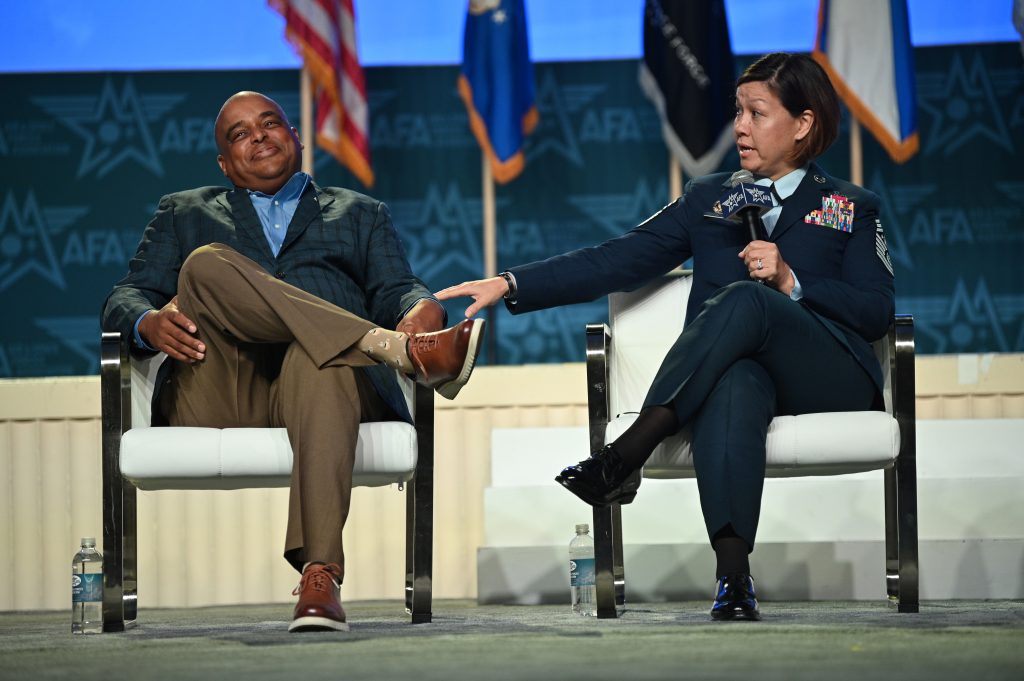
Growing Community and Resources
Throughout the decades, there have been some major policy changes that have been implemented for service members and their families. Beyond the expanding options and resources for therapy, networking, and veteran care, Charles Brown underscored the crucial role that the community and neighbors play in the lives of those undergoing a permanent change of station (PCS). He noted that many individuals find solace in making friends and connecting with civilians who have experienced similar situations, reaching out beyond the military community.
In this context, Sharon Brown shed light on the Exceptional Family Member Program (EFMP), which provides services for family members with special needs. She shared how programs like EFMP and School Liaisons went the extra mile to locate the appropriate resources for one of her sons who had been diagnosed with autism.
Gen. Saltzman described the PCS process as a ‘blessing and a curse.’ Relocating is never an easy task, but he said he appreciates the opportunity to witness his children relishing unique experiences in each location they’ve lived in. He went on to talk about how local individuals, from neighbors to his children’s school friends, have played a crucial role in helping the family adapt to new environments.
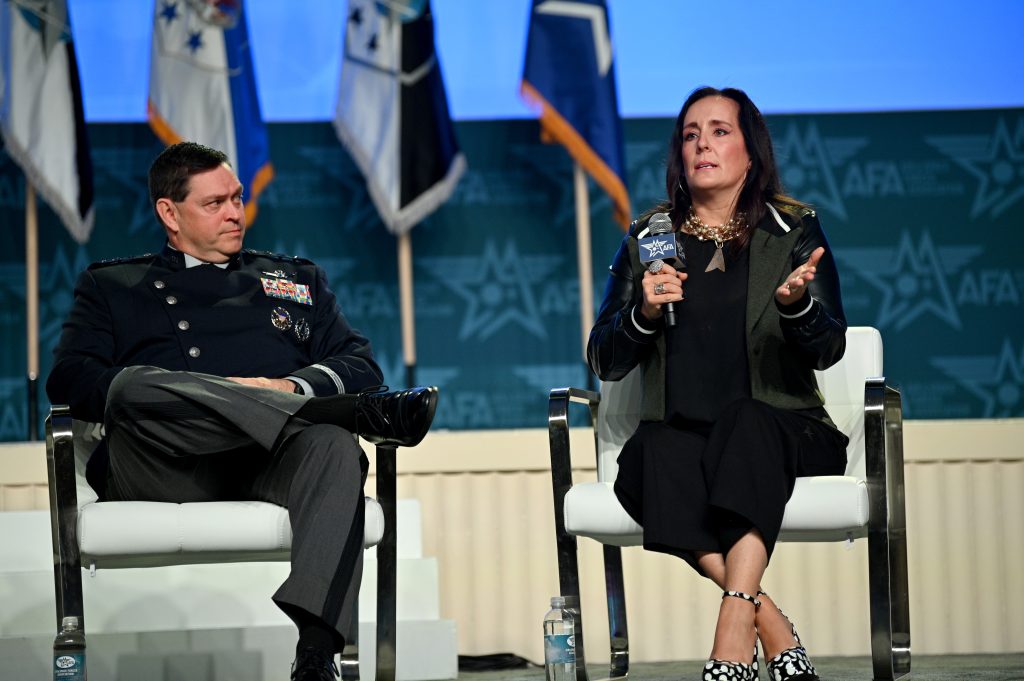
In This Together
In May, Jennifer Saltzman and Sharene Brown shared their insights on the “5 keys” to life as a military spouse during the United Forces & Families event hosted by the Air & Space Forces Association. These five principles, including cherishing family moments, engaging with the local community and building connections beyond the military sphere, resonated strongly at the Sept. 13 panel discussion. And what appeared to impress the audience were the moments when the military leaders and their partners candidly spoke about the challenges they’ve faced. As Gen. Brown emphasized, maintaining a family’s resilience and bonds is a formidable task, regardless of one’s rank. His departing message was straightforward: Appreciate those who are near and dear to you.
“We’re just regular people, like you. Our families either embraced this lifestyle through marriage or were born into it. We chose this path, but they had no say in it. So, let’s show them appreciation and say thank you.”
